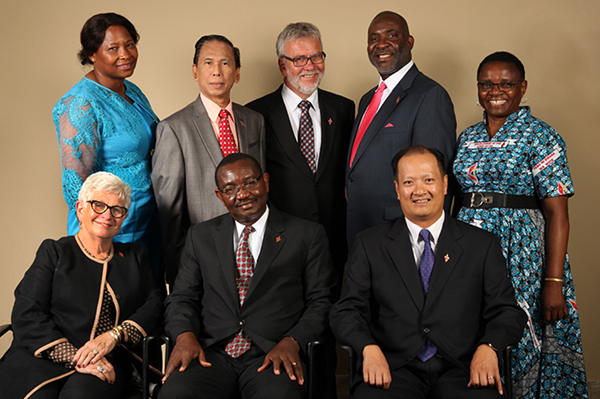The United Methodist Church's top court has found that while some provisions of the newly adopted Traditional Plan remain unconstitutional, the rest of the plan is valid as church law.
That was the Judicial Council's ruling on a requested review of the Traditional Plan, which was approved during a special denomination-wide legislative session in February to strengthen enforcement of bans on "self-avowed practicing" gay clergy and same-sex weddings.
Your support of The General Administration Fund apportionment supports the legislative body of the denomination, the Judicial Council.
In a separate ruling, legislation to provide an exit strategy for local churches wishing to leave the denomination meets three minimum requirements and thus is constitutional "when taken together with the consent of the annual conference" as specifically outlined in the Book of Discipline, the court said.
Both decisions came at the conclusion of the Judicial Council's April 23-26 meeting.
In Decision 1378, the top court said it applied "a severability test" to determine if the unconstitutional provisions of the Traditional Plan could be severed from what remained.
The Judicial Council has now ruled three times on the Traditional Plan and still finds seven of its petitions to be unconstitutional, including four that were amended during General Conference 2019.
Decision 1378 also declares all seven petitions to be null and void.
The Traditional Plan legislation the court held constitutional will take effect in the U.S. church Jan. 1, 2020. In Africa, Europe and the Philippines, the legislation will take effect 12 months after the next General Conference in May 2020. The disaffiliation petition, 90066, goes into effect immediately.
The Judicial Council rejected the argument from some of the briefs it received that Judicial Council Decision 1210 "is a precedent" for declaring the entire Traditional Plan unconstitutional. That decision — regarding a proposal called Plan UMC adopted by General Conference 2012 to overhaul the denomination's structure and organization — found the constitutional defect "affected every part of the plan."
In contrast, the court said, the Traditional Plan "consists of a series of petitions that were separately numbered, dealing with completely different paragraphs of The Discipline. One petition does not affect the other."
In Decision 1379, the Judicial Council reviewed an amended version of Petition 90066, one of the petitions designed to provide "a gracious exit" for local churches that want to leave the denomination.
The council previously found 90066 unconstitutional in Decision 1377, but it has now determined that any General Conference legislation permitting such an exit must meet three minimum requirements:
Approval of the disaffiliation resolution by a two-thirds majority of the professing members of the local church present and voting at the church conference.
Establishment of the terms and conditions, including the effective date, of the agreement between the annual conference and the exiting local church by the conference board of trustees in accordance with applicable church law and civil laws.
Ratification of the disaffiliation agreement by a simple majority of the members of the annual conference present and voting.
Linda Bloom, assistant news editor, UMNS, based in New York.
One of seven apportioned giving opportunities of The United Methodist Church, the General Administration Fund implements trustworthy administrative oversight, supports the legislative processes of the church and curates The United Methodist Church's rich history. Please encourage your leaders and congregations to support the General Administration Fund apportionment at 100 percent.





